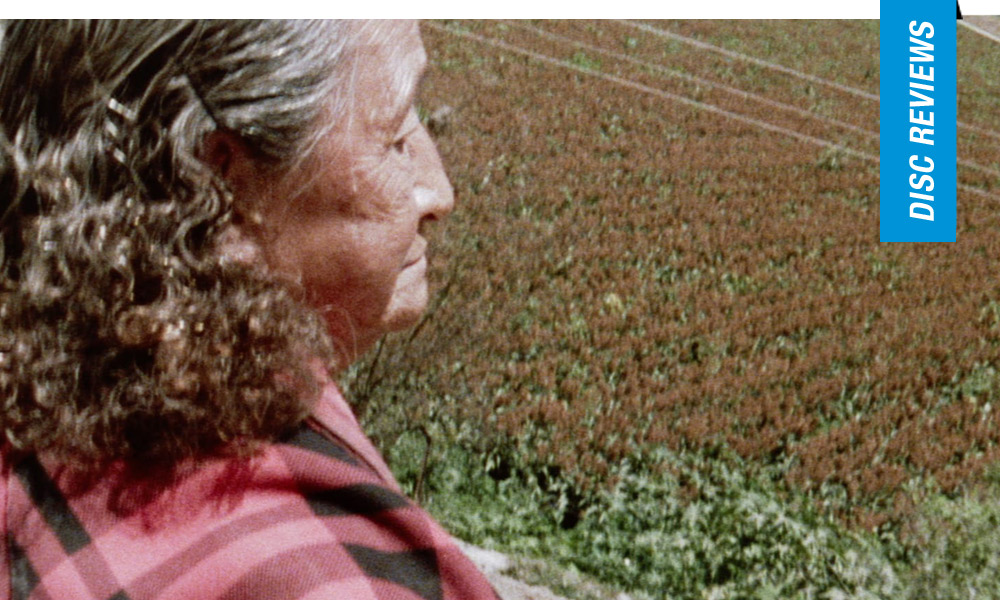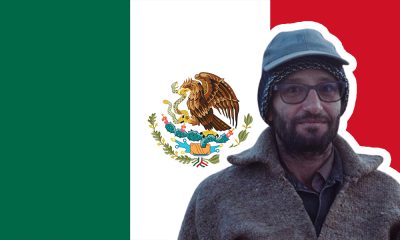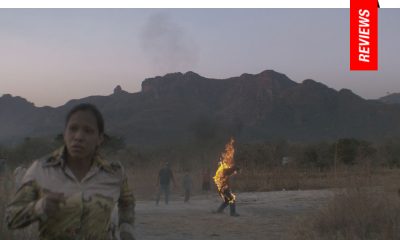Criterion Collection: Japón (2002) | Blu-ray Review
Nearly two decades after the acclaim it received in Un Certain Regard at the 2002 Cannes Film Festival, Carlos Reygadas’ inexplicable debut Japón remains an enigmatic juxtaposition of the sacred and profane. Earning well-deserved comparison to the titans which influenced him, including Tarkovsky and Herzog, Reygadas jumpstarted a post-Mexican New Wave at the dawn of the last century, which would eventually include Michel Franco and favored acolytes, such as Amat Escalante. Unlike the previous batch of lauded Mexican contemporaries, Reygadas has avoided the Hollywood film machine, instead sticking close to home and inveigling himself with contemporary social ills displayed in semi-inscrutable narratives—even avoiding English language characters up until 2018’s Our Time, his most insular and psychologically intimate venture to date (which also represented the filmmaker’s break from Cannes, a festival he’d been attached to since his debut). While its narrative arc couldn’t be simpler, Reygadas’ first film maintains a mystical, otherworldly ambience, paralleling primal urges and mother nature as its human characters waffle about on Maslow’s hierarchy.
Its title confirms a ‘stranger in a strange land’ sense of alienation. Like Terry Gilliam’s Brazil (1985), or perhaps more fittingly, Lisandro Alonso’s Liverpool (2008), the titular locale remains unrelated to the action. The unnamed bedraggled protagonist (Alejandro Ferretis), a painter, wanders into a rural nowhere (not unlike Mr. Van Gogh), announcing nonchalantly his plans to kill himself. Without batting an eye, the locals take him to the only vacant abode, a barn owned by Ascensión (Magdalena Flores), who corrects the spelling and therefore meaning of her name when the man questions her. As Ascensión refers to the ascent of Christ into the heavens, this relates to the film’s final moments, when a descent proves fatalistic. The film’s opening moments, which follows the congested streets of Mexico City, recalls the freeway sequences of Solaris (1972), a visualization of isolated displacement and a languorous journey to somewhere else for its characters to drift.
The unnamed man finds himself reconnecting to nature and humanity through his relationship with Ascensión. Yet while this proves to be his revival, the pious older woman finds her own existence begin to deteriorate when an estranged nephew is released from prison and decides to claim ownership over her home, a property his father once owned. What transpires becomes an exercise in reverse transcendence.
Disc Review:
Criterion presents Japón as a new 2K digital restoration, supervised by Carlos Reygadas, with 2.0 surround DTS-HD Master Audio in 2.88:1. Picture and sound quality are superb in this new transfer, particularly for its commendable cinematography (and unforgettable final sequence).
Carlos Reygadas:
Criterion recorded this forty-two-minute conversation between Reygadas and Amat Escalante in November 2017, wherein the two directors discuss the origins, inspirations and production of the film.
Deleted Scene:
Reygadas originally premiered Japón at the 2002 Rotterdam Film Festival, where it originally featured a different ending, showing the crash which concludes the film and not just the aftermath. The original sequence is included here.
Production Diary:
Actor Alejandro Ferretis documented the shoot of Japón with a Hi8 camera, and edited his memories into a film presented here.
Adulte:
Reygadas directed this seven-minute short film in 1998 while living in Belgium.
Final Thoughts:
A precursor to the equally esoteric and transcendental masterpiece Post Tenebras Lux (2012), Reygadas’ Japón is an exquisite portrait of the restorative powers of human connection and the troubling reconciliation of spirituality and reality.
Film Rating: ★★★★/☆☆☆☆☆
Disc Rating: ★★★★/☆☆☆☆☆
Los Angeles based Nicholas Bell is IONCINEMA.com's Chief Film Critic and covers film festivals such as Sundance, Berlin, Cannes and TIFF. He is part of the critic groups on Rotten Tomatoes, The Los Angeles Film Critics Association (LAFCA), the Online Film Critics Society (OFCS) and GALECA. His top 3 for 2021: France (Bruno Dumont), Passing (Rebecca Hall) and Nightmare Alley (Guillermo Del Toro). He was a jury member at the 2019 Cleveland International Film Festival.




































